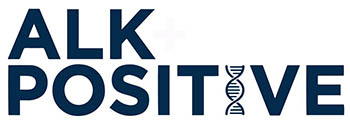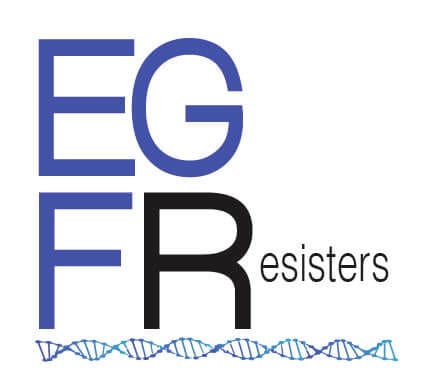LUNGevity funds a variety of translational research programs both in the early detection and treatment of lung cancer and in workforce development in order to have a significant impact on survival and quality of life for those diagnosed with the disease.

Workforce Development Award Programs
Programs to encourage young researchers to focus on lung cancer
Career Development Award Program
The goal of the LUNGevity Career Development Award Program is to train and retain the next generation of lung cancer researchers. These awards recognize outstanding scientists early in their careers, encouraging their continued development toward leadership in the field by supporting their innovative early detection or therapeutics research projects. In addition to funding, LUNGevity provides science communications training along with networking and collaboration opportunities at its annual Fall Science Meeting, where awardees present their research progress to LUNGevity’s Scientific Advisory Board and their peers.
This award has given me the freedom to focus on academic research and to develop a specialization in KRAS-mutant lung cancer, both within my institution and beyond. It provides me with the validation to go forward, and it gives me time and space to work with translational collaborators.
—Kathryn Arbour, MD, 2020 Career Development Awardee
Veterans Affairs Research Scholar Award Program
The long-term goal of the LUNGevity Veterans Affairs Research Scholar Award is to promote research within the VA system to both leverage the VA’s infrastructure for lung cancer research and foster a new generation of researchers invested in learning about lung cancer in a highly underserved community in the US. Funded projects, which must have relevance to the veteran population, are expected to:
- Have a direct impact on veterans at risk or with lung cancer, or
- Provide a clear conceptual or experimental foundation for the future development of methods of screening/early detection, and/or
- Provide a clear conceptual or experimental foundation for the future development of individualized treatments, including surgery, radiation, and targeted or immune-based therapies
The research award from LUNGevity has been transformational for me. It has directly allowed me to grow my team as a new faculty member of my university hospital system. I’m hiring data analysts and program managers, and really starting to build my team. LUNGevity support has allowed that. I really can’t express my gratitude enough.
—Alex Bryant, MD, 2022 VA Research Scholar Awardee
Health Equity and Inclusiveness Research Award Program
The long-term goal of the LUNGevity Health Equity and Inclusiveness Research Award program is to train a new generation of lung cancer researchers from underrepresented minority communities who are dedicated to both translational and clinical research.
The LUNGevity Health Equity and Inclusiveness Junior Investigator Award supports physician-scientists interested in conducting lung cancer clinical research and bridging health disparities by engaging underserved communities and underrepresented minorities.
The LUNGevity Health Equity and Inclusiveness Research Fellow Award supports fellows who are interested in lung cancer research. Funded projects are expected to have a direct impact on the early detection of lung cancer or the outcomes of lung cancer, or to provide a clear conceptual or experimental foundation for the future development of methods of early detection and/or individualized treatment, including targeted therapy and immunotherapy.
Awardees of the Health Equity and Inclusiveness Research Award Program are automatically enrolled in the LUNGevity Minority Mentorship and Training Program. This program provides professional career development, training in grant writing, and supportive wraparound mentorship with an established oncology leader.
This award is the breakthrough in my career as a physician-scientist. It’s a platform to grow my research and it provides the necessary funds, mentorship, and support to help me pursue my goal of closing the diversity gap in lung cancer screening in the Hispanic population. I’m so grateful for this opportunity.
—Coral Olazagasti, MD, 2022 Health Equity and Inclusiveness Junior Investigator Awardee
Pierre Massion Young Investigator Award for Early Detection Research
The Pierre Massion Young Investigator Award for Early Detection Research honors the late Pierre Massion, MD, an internationally known expert on early detection and prevention strategies for lung cancer, and longtime friend of LUNGevity.
This award supports young investigators interested in early detection research who belong to underrepresented minorities in STEM. Research projects are restricted to translational lung cancer research.
LUNGevity research awards are exciting, especially for researchers like me, who are early in our careers. Awards like this revolutionize the science we perform. I can now hire support staff to perform higher-quality statistical data analysis and data cleaning compared to what I was able to do before the award when I was doing the research on my own. I’m also able to progress more efficiently and more quickly toward the results I hope to achieve.
—Lawrence Benjamin, MD, 2023 Pierre Massion Young Investigator Awardee
ASTRO-LUNGevity Residents/Fellows in Radiation Oncology Seed Grant
This award program is intended to foster and develop the research careers of residents and fellows interested in radiation oncology-related basic, translational, and/or clinical research to benefit patients with lung cancer. This award is co-funded by the American Society for Radiation Oncology (ASTRO).

Early Detection Award Programs
Programs that support research to intercept or detect lung cancer early in its progression
Early Detection Research Award Program
The long-term goal of the LUNGevity Early Detection Research Award Program is to noninvasively find and treat lung cancer early. Projects funded through the program are expected to have a direct impact on early detection and/or the diagnosis of lung cancer, or a clear conceptual or experimental foundation for the future development of methods for early detection and/or diagnosis. Awardees are answering important questions that address these unmet needs in the early detection of lung cancer:
- How can we find lung cancer early when it is most treatable?
- How can we noninvasively determine if the cancer is aggressive or indolent (which ones need medical intervention and which do not)?
- How do we know which people are at highest risk for lung cancer and should be monitored more vigilantly?
- How can we catch lung cancer early in people who are at low risk (e.g., people without a history of tobacco exposure)?
This award was a huge stepping stone. It gave me a chance to start my first clinical trial. This is pivotal for a basic scientist like me. I do most of my work with mice and cell lines. It is a huge accomplishment to see my research come together, move toward the clinic, and be used to start a clinical trial. It’s been a dream come true for me.
—Claudio Scafoglio, MD, PhD, 2021 Early Detection Awardee
Lung Cancer Interception Research Awards
In collaboration with Stand Up To Cancer and the American Lung Association, LUNGevity supports two first-of-their-kind awards that take a novel approach to finding lung cancer early, when it is most treatable. These research awards focus on lung cancer interception—catching precancerous cells and blocking them from turning into cancer cells. The goal of these interdisciplinary and multi-institutional awards is to find noninvasive, widely available diagnostic and early detection tools that will dramatically change outcomes for people with lung cancer.
With the ability to test for molecular changes through noninvasive measures, we can rule out the disease earlier and give peace of mind to many people facing a lung cancer diagnosis.
—Avrum Spira, MD, MSc, LUNGevity Scientific Advisor, speaking on the importance of interception research

Therapeutics Research Award Program
Awards that support research into new treatments
The long-term goal of the LUNGevity Therapeutics Research Award Program is to help people with a lung cancer diagnosis live longer and healthier lives. LUNGevity awardees are at the forefront of precision medicine—bringing the right therapy, in the right dose, to the right patient, at the right time—by answering these important questions:
- How can we match the right patient to the right therapies for maximum effectiveness and minimum side effects?
- How do we overcome resistance to therapies so that patients can benefit from them longer?
- How do we best sequence/combine therapies for maximum effect?
- How do we build on the early successes of immunotherapy?

Awards that focus on a particular genomic alteration
LUNGevity partners with patient-led lung cancer advocacy groups to support research that focuses specifically on the most critical unmet needs in the treatment of their particular types of non-small cell lung cancer (NSCLC), as determined by the groups themselves. The long-term goal of the research is to transform these lung cancers into either chronic, manageable conditions or curable conditions. LUNGevity provides the infrastructure, proposal assessments, and scientific guidance, while the partner groups select and fund the research. LUNGevity partners include the following organizations.



THE HAMOUI FOUNDATION (for RET-positive)
Research is a team sport. This award has not only helped me in my career personally, but it’s also set up lifelong relationships with other colleagues who can also help us deliver on the promise of improving therapeutic options for people who have been affected by lung cancer.
—Tejas Patil, MD, 2022 Hamoui Foundation/LUNGevity Clinical Research Awardee for RET-Positive Lung Cancer
Without this award, this research would not be possible. We all know that costs are going up and clinical trials are expensive. That’s why this award from ALK Positive and LUNGevity is so special. It has a focus on the patients and bringing treatments to patients right now, not ten years down the road.
—Angel Qin, MD 2022 ALK Positive/LUNGevity Lung Cancer Research Awardee
Brown/LUNGevity Award to Understand Mechanisms of Resistance to Immunotherapy
This award program funds high-impact research that seeks to understand resistance to first-line immunotherapy and develop therapeutic strategies targeting this resistance. The research funded through this award is expected to have a direct clinical impact on patients with NSCLC whose tumors have progressed on currently approved immunotherapy regimens.
